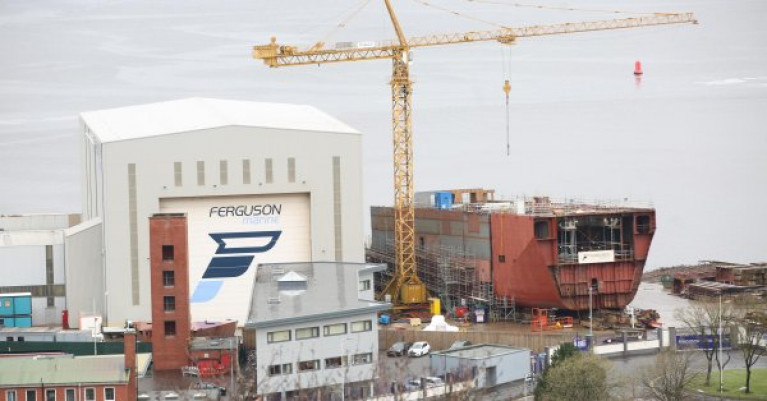In Scotland, a western based ferry boss has warned commercial operators will now be “nervous” of ordering new vessels from the Ferguson shipyard on the Clyde, amid the ongoing fallout from a contract to build two dual-fuel (ferries) to operate on the west coast.
A report by MSPs into the procurement and delivery of the two vessels for the CalMac network slammed the process as a “catastrophic failure” earlier this month. Caledonian Maritime Assets Limited (CMAL) awarded Ferguson, then owned by Jim McColl’s Clyde Blowers Capital.
The £97 million contract to build the ferries in 2015. But the process was blighted by delays, spiralling costs and a breakdown in relations between CMAL, which owns the ferries run by CalMac, and shipyard bosses.
The vessels have still to be completed and are expected to cost at least double the original contract value, with Ferguson having been nationalised last year after falling into administration.
More here reports the HeraldScotland on the ongoing shipyard saga and for a related story of recent months.


























































